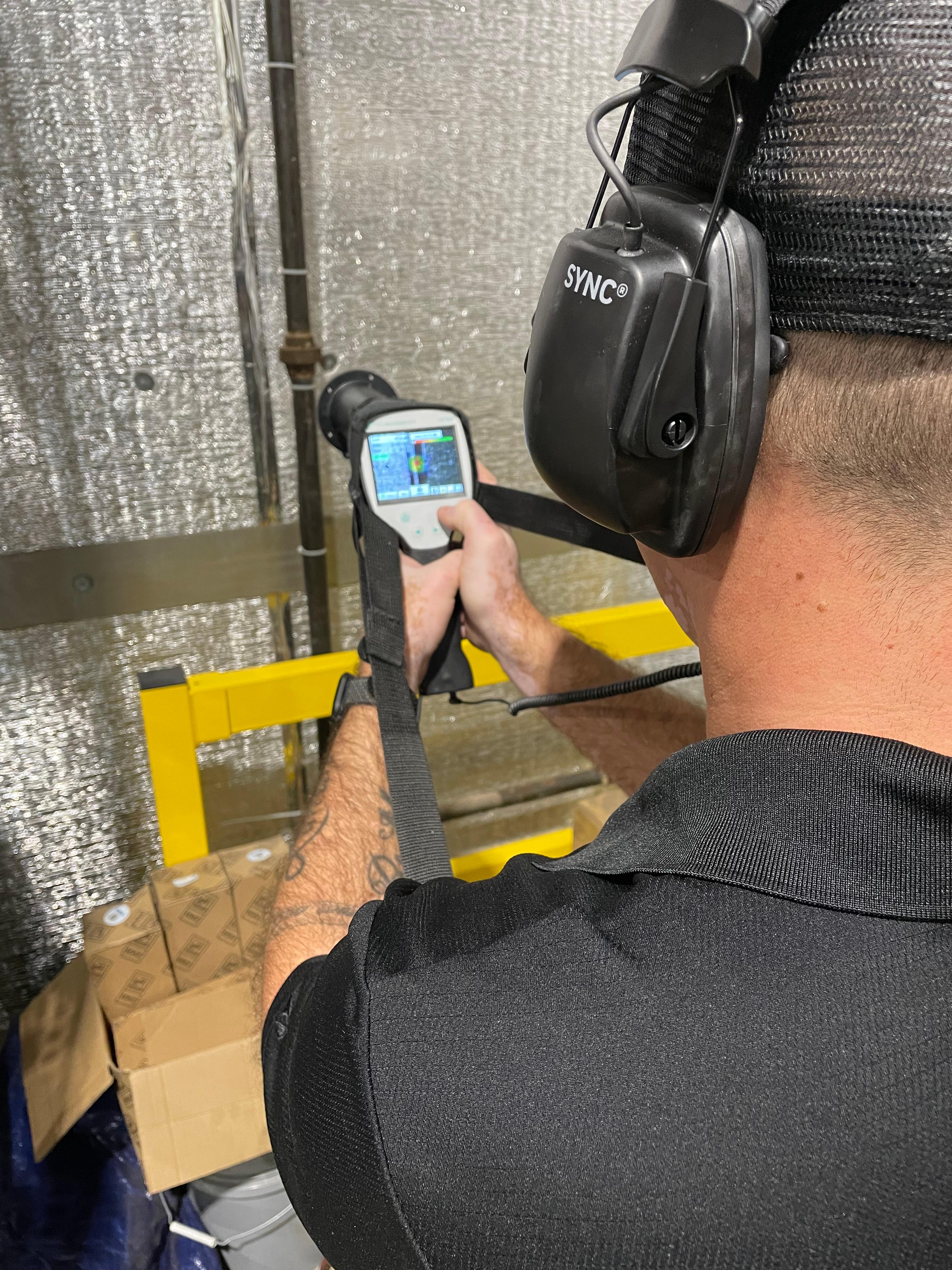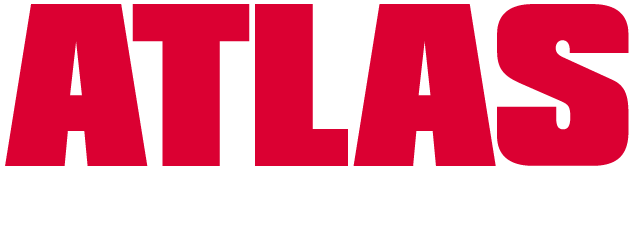Analyze Your System
Compressed Air
Audit Services
Maximize your operational efficiency with Atlas Machine's Compressed Air Audit Services, meticulously designed to identify and eliminate energy waste in your compressed air systems.
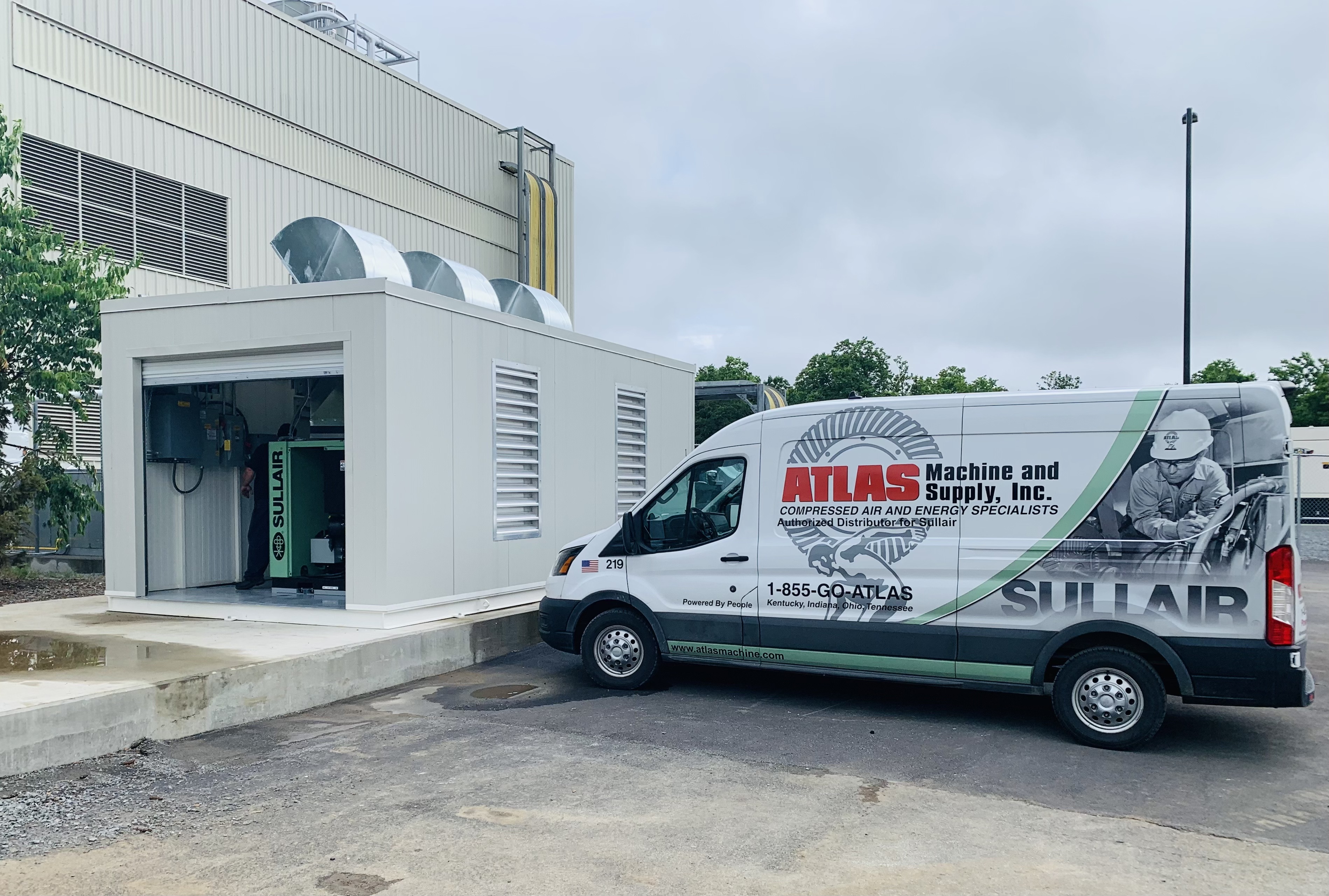

Uncover Hidden Inefficiencies with a Compressed Air Audit
Atlas Machine & Supply’s compressed air audits pinpoint leaks, pressure drops, and energy waste, providing you with the data you need to optimize performance and reduce costs. Our expert team delivers actionable insights tailored to your facility.
Click the button below to download our Compressed Air Audit Flyer and see how an audit can improve your system’s efficiency and reliability.
Schedule Your Compressed Air Audit Today!
Don't let inefficiencies in your compressed air system impact your bottom line. Contact us today to schedule a Compressed Air Audit and take the first step toward optimizing your system for enhanced performance and cost savings. Complete the form below to book a time with our air professionals or give us a call at (502) 584-7262.
All system audits performed by U. S. Department of Energy (D.O.E.) AIRMaster+ Specialist!
Why Choose Our Compressed Air Audit Services?
1. Expertise:
Our team of experienced engineers and technicians specialize in compressed air systems. We bring a wealth of knowledge to every audit, ensuring a comprehensive analysis of your system's performance.
2. Customized Solutions:
We understand that every facility is unique. Our audits are tailored to your specific needs, providing customized recommendations to address inefficiencies and optimize your compressed air system.
3. Energy Efficiency:
Compressed air systems can account for a significant portion of a facility's energy costs. Our audits focus on identifying opportunities to improve energy efficiency, resulting in substantial long-term cost savings.
4. Cost-Benefit Analysis:
We provide a detailed cost-benefit analysis of recommended improvements, helping you make informed decisions about potential upgrades and investments in your compressed air system.
5. Comprehensive Reporting:
Receive a comprehensive report outlining the current state of your compressed air system, along with clear and actionable recommendations for improvement. Our reports are easy to understand and serve as a roadmap for optimization.
Our Compressed Air Audit Process:
1. Initial Consultation:
We begin with a consultation to understand your facility's unique requirements and challenges.
2. System Assessment:
Our team conducts a thorough assessment of your compressed air system, including air compressors, dryers, filters, distribution piping, and end-use applications.
3. Data Collection:
We gather and analyze data on system performance, energy consumption, and maintenance history.
4. Efficiency Analysis:
Utilizing advanced tools and technology, we evaluate the efficiency of your compressed air system and identify areas for improvement.
5. Recommendations:
Based on our findings, we provide a detailed set of recommendations to enhance system efficiency, reduce energy consumption, and improve overall performance.
6. Implementation Support:
If desired, our team can assist with the implementation of recommended improvements, ensuring a smooth transition to a more efficient compressed air system.
Baseline System Evaluations
A baseline system evaluation involves assessing various key factors to ensure the optimal performance of a system:
- Annual Cost - The annual cost is a crucial metric, encompassing operational expenses, maintenance, and potential upgrades.
- System Efficiency - System efficiency gauges how effectively resources are utilized, aiming for maximum output with minimal input.
- Pressure & Flow Profiles - Pressure and flow profiles are analyzed to maintain stability within the system, ensuring that components operate within specified parameters.
- Individual Compressor Performance - Evaluating individual compressor performance is essential to identify any disparities or inefficiencies, enabling targeted improvements.
- Identifying Pressure Problems - Additionally, the assessment includes identifying pressure problems, which could lead to system malfunctions or reduced efficiency if left unaddressed.
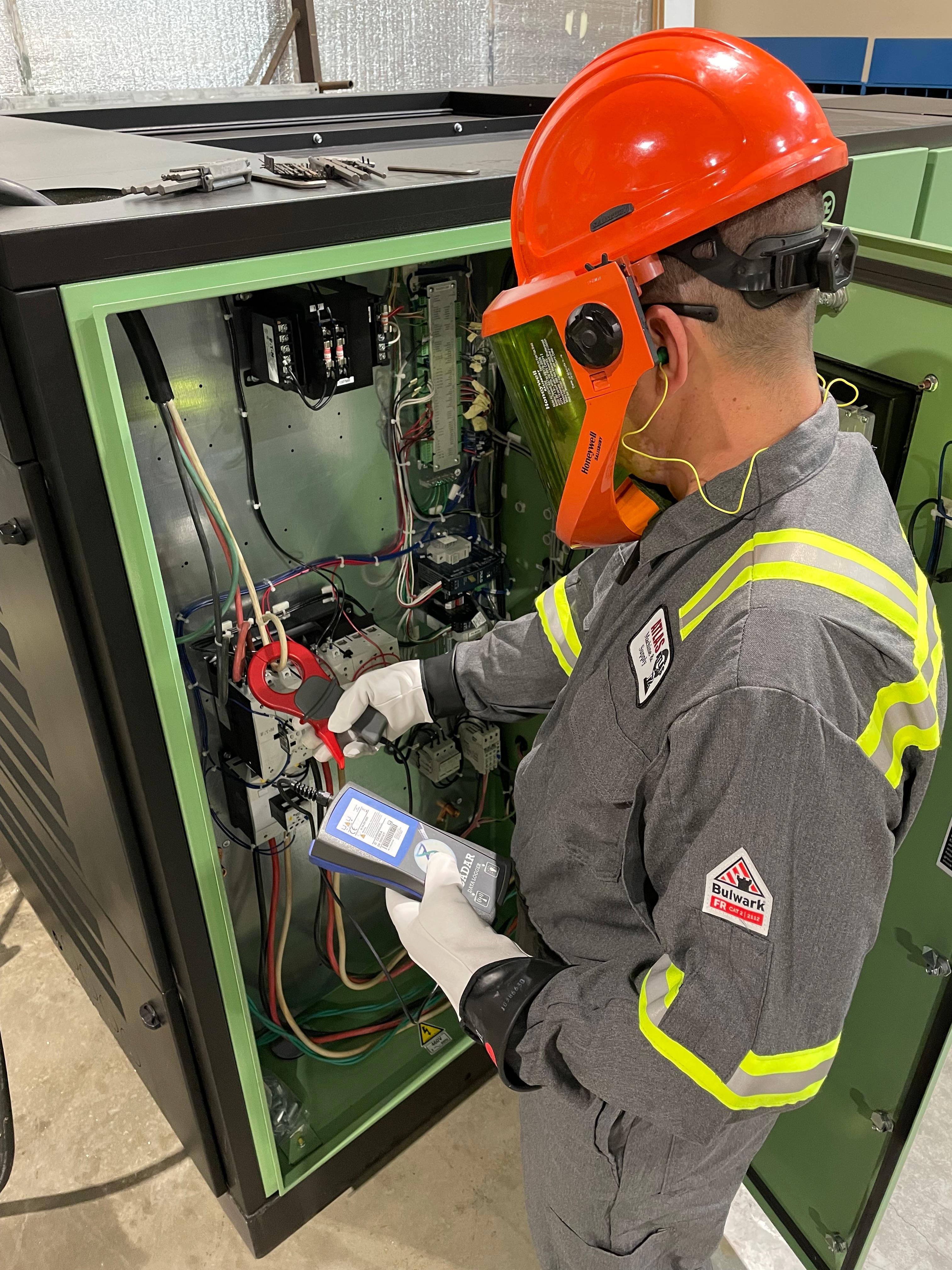
Sizing of New Equipment
The sizing of new equipment is a critical aspect in optimizing overall system efficiency.:
- Recommendations - Since utilizing the correct size equipment plays a key role in enhancing the performance of the system and ensuring that it operates at its full potential, our Atlas specialists will provide recommendations based on your particular situation and operating environment.
- System Simulations - System simulations are employed to model and analyze various scenarios, aiding in the selection of appropriate equipment sizes and configurations.
- Sizing of Compressors/Dryers - When it comes to compressors and dryers, accurate sizing is essential to meet the specific requirements of the application, preventing underperformance or energy waste.
- Control Solutions - Control solutions further contribute to efficiency by regulating the operation of equipment, adjusting parameters based on real-time data, and minimizing energy consumption.
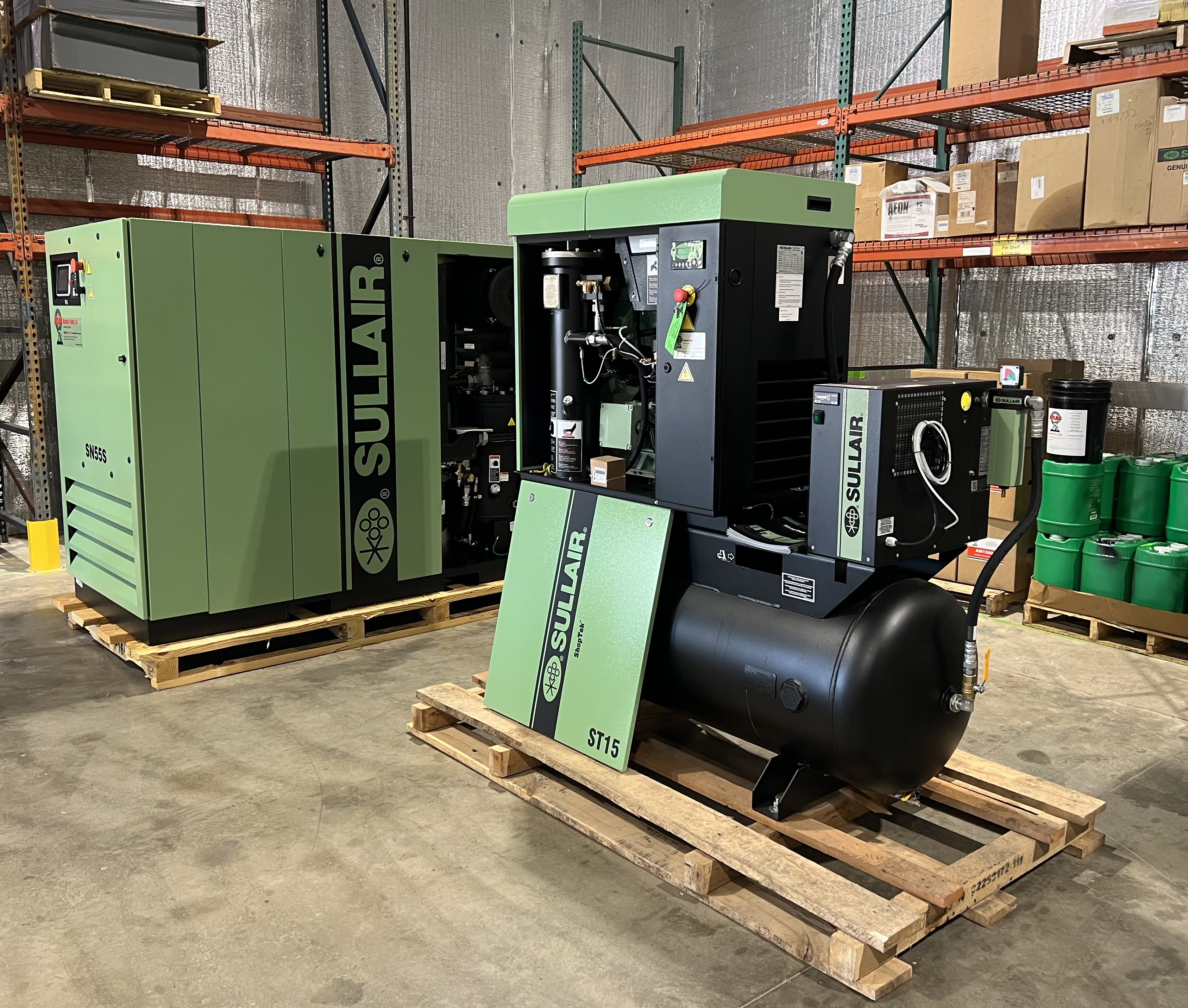
Ultrasonic Leak Surveys
Ultrasonic leak surveys are a proactive and efficient method employed by numerous industries to identify and address compressed air leaks, promoting energy conservation and cost savings:
- Individual Leak Tags - During these surveys, individual leak tags are affixed to identified points, allowing for precise tracking and management.
- Comprehensive Report - The comprehensive report generated includes crucial information such as pictures of each leak, individual leak details, cost, and estimated compressed air loss. This detailed documentation aids maintenance teams in prioritizing and executing repairs based on severity and potential impact. The data-rich reports not only enhance the overall maintenance strategy but also provide valuable insights into the associated costs. This enables your organization to make informed decisions and optimize their energy consumption, ultimately contributing to sustainability efforts and reducing operational expenses.
